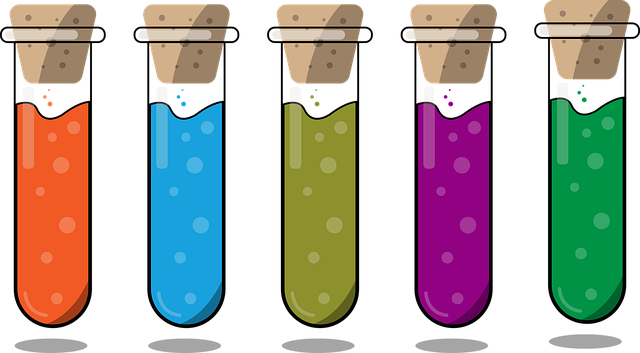Cholesterol blood tests are essential for preventive healthcare, monitoring critical cholesterol types (LDL, HDL, total) to prevent cardiovascular diseases, global leaders in mortality. Regular testing reveals risks associated with high LDL ('bad') cholesterol and benefits of HDL ('good') cholesterol, enabling informed lifestyle changes or medical interventions. Innovative at-home kits and community health initiatives make these tests more accessible through affordable insurance plans, enhancing heart health outcomes by early detection and management of high cholesterol levels.
Stay one step ahead of health risks with affordable cholesterol blood tests. This essential tool for regular monitoring can catch the silent killer, cholesterol, before it causes significant damage. Our article guides you through understanding cholesterol’s impact, highlighting the critical role of routine checks in early detection. We explore affordable options to make this vital monitoring accessible. Learn how to interpret results and take proactive steps for better health. Get informed with our comprehensive guide on cholesterol blood tests.
- Understanding Cholesterol: The Silent Killer and Its Impact on Health
- Why Regular Cholesterol Blood Tests Are Essential for Early Detection
- Exploring Affordable Options: Making Cholesterol Monitoring Accessible
- Interpretating Results: Deciphering Your Cholesterol Levels and Next Steps
Understanding Cholesterol: The Silent Killer and Its Impact on Health
Cholesterol, often referred to as the ‘silent killer’, is a waxy substance found in our blood that plays a crucial role in maintaining overall health. While it’s necessary for building and maintaining cell membranes, producing hormones, and providing energy, elevated levels of cholesterol can lead to significant health issues. High cholesterol is a major risk factor for cardiovascular diseases, including heart attacks and strokes, which are among the leading causes of death globally. Regularly monitoring cholesterol levels through simple blood tests is, therefore, an essential step in preventive healthcare.
Understanding your cholesterol profile enables proactive measures to manage and improve it. A cholesterol blood test, also known as a lipid panel, typically measures total cholesterol, LDL (low-density lipoprotein) or ‘bad’ cholesterol, HDL (high-density lipoprotein) or ‘good’ cholesterol, and sometimes triglycerides. Knowing these numbers can help you make informed decisions about lifestyle changes and, if necessary, medical interventions to keep your cardiovascular system healthy.
Why Regular Cholesterol Blood Tests Are Essential for Early Detection
Regular cholesterol blood tests play a pivotal role in early detection and management of cholesterol levels, which is crucial for maintaining optimal health. High cholesterol often has no noticeable symptoms, making it a silent risk factor that can lead to serious health issues like heart disease and strokes if left undiagnosed. A simple cholesterol blood test can reveal your LDL (bad) cholesterol, HDL (good) cholesterol, and total cholesterol levels, providing valuable insights into your cardiovascular health.
By incorporating these tests into your regular health monitoring routine, you can take proactive steps to mitigate risks. Early detection allows for timely interventions such as lifestyle changes or medical treatments, which have been proven effective in managing and even reducing cholesterol levels. This preventive approach is key to avoiding the long-term consequences of high cholesterol and promoting a healthier future.
Exploring Affordable Options: Making Cholesterol Monitoring Accessible
Exploring affordable options is key to making cholesterol monitoring accessible for everyone. Regular health checks, including cholesterol blood tests, are essential tools in preventing cardiovascular diseases. However, high costs have historically been a barrier for many individuals. Fortunately, various strategies and innovations have emerged to address this challenge.
From convenient at-home testing kits to community health initiatives offering subsidized screenings, these options make cholesterol monitoring more feasible and cost-effective. Additionally, insurance plans with lower out-of-pocket expenses or specific coverage for preventive care play a significant role in encouraging individuals to take charge of their cardiovascular health. Such accessibility promotes early detection and management of high cholesterol levels, ultimately leading to improved heart health outcomes.
Interpretating Results: Deciphering Your Cholesterol Levels and Next Steps
Cholesterol blood tests provide a crucial snapshot of your cardiovascular health, offering valuable insights into your overall well-being. When interpreting your results from a cholesterol blood test, it’s essential to understand that different types of cholesterol have distinct roles and impact on your health. LDL (low-density lipoprotein) cholesterol is often referred to as ‘bad’ cholesterol because elevated levels can lead to plaque buildup in your arteries, increasing the risk of heart disease and stroke. On the other hand, HDL (high-density lipoprotein) cholesterol, commonly known as ‘good’ cholesterol, aids in removing LDL cholesterol from your bloodstream, thereby reducing cardiovascular risks.
Knowing your total cholesterol level is also key. A reading below 200 mg/dL is generally considered optimal for adults. If your result falls between 200-239 mg/dL, it’s classified as borderline high, indicating a slightly elevated risk of heart disease. Any level at or above 240 mg/dL warrants attention, as it significantly increases the likelihood of cardiovascular issues. Based on these interpretations, you and your healthcare provider can collaborate to determine appropriate next steps, such as lifestyle modifications (diet, exercise) or medical interventions to manage cholesterol levels effectively.
Regular cholesterol blood tests are a powerful tool for maintaining optimal health. By choosing affordable options, individuals can take control of their well-being and ensure early detection of any issues. Understanding cholesterol levels and taking appropriate actions based on results is essential in the journey towards better heart health. So, why wait? Take a dive into the world of accessible cholesterol monitoring and embrace a healthier future.
